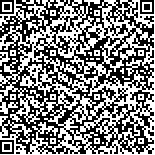| 引用本文: | 张轶雯,盛孔胜,朱俊峰,秦辉,孔思思,黄萍.清肺口服液的多指标成分含量测定及提取工艺考察[J].中国现代应用药学,2021,38(19):2394-2398. |
| ZHANG Yiwen,SHENG Kongsheng,ZHU Junfeng,QIN Hui,KONG Sisi,HUANG Ping.Multi-indicator Components Determination and Extraction Process Investigation of Qingfei Oral-solution[J].Chin J Mod Appl Pharm(中国现代应用药学),2021,38(19):2394-2398. |
|
| |
|
|
| 本文已被:浏览 1739次 下载 991次 |

码上扫一扫! |
|
|
| 清肺口服液的多指标成分含量测定及提取工艺考察 |
|
张轶雯1, 盛孔胜2, 朱俊峰3, 秦辉1, 孔思思3, 黄萍1
|
|
1.浙江省人民医院, 杭州医学院附属人民医院药学部, 杭州 310010;2.浙江中医药大学药学院, 杭州 310053;3.中国科学院大学附属肿瘤医院药剂科, 杭州 310022
|
|
| 摘要: |
| 目的 建立清合口服液的多指标含量测定方法,并对其提取工艺进行考察。方法 采用HPLC测定清肺口服液中绿原酸、咖啡酸、对香豆酸、野黄芩苷、迷迭香酸、芹菜素的含量。色谱条件:流动相为0.3%甲酸溶液(A)和乙腈(B),梯度洗脱,流速1.0 mL·min-1,进样量10 μL;采用Agilent Zorbax SB-C18(4.6 mmx150 mm,5 μm)色谱柱,柱温35℃,检测波长为310 nm (0~25 min)和330 nm (25~75 min)。通过正交试验设计考察水提方法的纯水用量、浸泡时间、回流提取次数及回流提取时间对清肺口服液中各指标提取工艺的影响。结果 绿原酸、咖啡酸、对香豆酸、野黄芩苷、迷迭香酸、芹菜素分别在2.28~145.70 μg·mL-1(r2=0.998 4)、3.07~196.70 μg·mL-1(r2=0.998 9)、1.63~104.30 μg·mL-1(r2=0.999 0)、1.49~95.20 μg·mL-1(r2=0.998 8)、1.22~77.80 μg·mL-1(r2=0.999 3)、0.62~39.70 μg·mL-1(r2=0.999 0)有良好的线性关系,平均加样回收率分别为98.82%,100.71%,100.06%,99.09%,98.73%,101.71%,相对标准偏差分别为1.89%,3.19%,1.61%,3.45%,3.09%,2.55%。最佳提取工艺为8倍量的纯水浸泡1 h,并连续回流提取2次,每次回流提取时间为1.5 h。结论 本研究建立的清肺口服液多指标含量测定方法简便、准确、重复性好;优选的提取工艺稳定可行。 |
| 关键词: 清肺口服液 高效液相色谱法 多指标含量测定 提取工艺优化 |
| DOI:10.13748/j.cnki.issn1007-7693.2021.19.009 |
| 分类号:R917 |
| 基金项目:浙江省自然科学基金项目(LYY19H280001);浙江省中医药重点项目(2018ZZ006,2020ZZ003) |
|
| Multi-indicator Components Determination and Extraction Process Investigation of Qingfei Oral-solution |
|
ZHANG Yiwen1, SHENG Kongsheng2, ZHU Junfeng3, QIN Hui1, KONG Sisi3, HUANG Ping1
|
|
1.Department of Pharmacy, Zhejiang Provincial People's Hospital, People's Hospital of Hangzhou Medical College, Hangzhou 310010, China;2.College of Pharmaceutical Science, Zhejiang Chinese Medical University, Hangzhou 310053, China;3.Department of Pharmacy, Cancer Hospital of the University of Chinese Academy of Sciences, Hangzhou 310022, China
|
| Abstract: |
| OBJECTIVE To establish a method for determination of multiple-indicator components of Qingfei oral-solution and to investigate its extraction process. METHODS The HPLC was performed to determine the content of chlorogenic acid, caffeic acid, p-coumaric acid, scutellarin, rosemary acid, and apigenin in Qingfei oral-solution. Chromatographic conditions:the mobile phase was 0.3% formic acid(A) and acetonitrile(B) with gradient elution at the flow rate of 1.0 mL·min-1 and injection volume was 10 μL. The chromatographic column was Agilent Zorbax SB-C18(4.6 mmx150 mm, 5 μm) and the column temperature was 35℃. The detection wavelength was 310 nm(0-25 min) and 330 nm(25-75 min). The effect of pure water amount, soaking time, number and time of reflux extraction on the extraction of multiple-indicator components from Qingfei oral-solution was studied via orthogonal design. RESULTS The calibration curve of chlorogenic acid, caffeic acid, p-coumaric acid, scutellarin, rosemary acid, and apigenin was linear over the range of 2.28-145.70 μg·mL-1(r2=0.998 4), 3.07-196.70 μg·mL-1(r2=0.998 9), 1.63-104.30 μg·mL-1(r2=0.999 0), 1.49-95.20 μg·mL-1(r2=0.998 8), 1.22-77.80 μg·mL-1(r2=0.999 3) and 0.62-39.70 μg·mL-1(r2=0.999 0). The average recoveries were 98.82%, 100.71%, 100.06%, 99.09%, 98.73%, 101.71% respectively. RSDs were 1.89%, 3.19%, 1.61%, 3.45%, 3.09%, 2.55% respectively. The optimum extraction process was as follows:8 times volumes of water was used as solvent to soak for 1 h and extract with reflux 2 times for 1.5 h per time. CONCLUSION The established method is simple, accurate and reproducible for determination of multiple-indicator components of Qingfei oral-solution. The optimal extraction process is stable and feasible. |
| Key words: Qingfei oral-solution HPLC determination of multi-indicator content optimization of extraction process |
|
|
|
|
